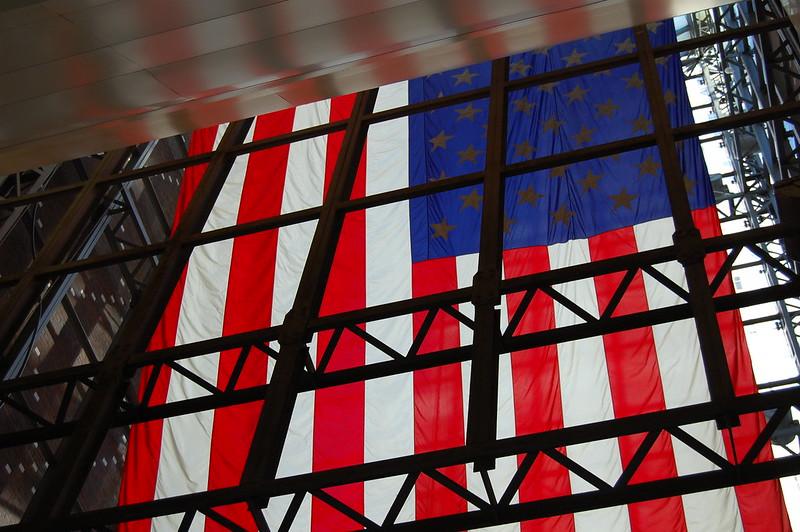International institutions still matter to the US
Posted By Joseph S. Nye on November 10, 2020 @ 11:12

Donald Trump may have despised international institutions, but his presidency has reminded the world of the importance of effective and resilient ones. In the 2016 election, Trump campaigned on the argument that the post-1945 multilateral institutions had let other countries benefit at American expense. His populist appeal rested on far more than foreign policy, of course, but Trump successfully linked domestic resentments to foreign policy by blaming economic problems on ‘bad’ trade deals with countries like Mexico and China and on immigrants competing for jobs. The post-1945 liberal international order was cast as a villain.
As I show in my book Do morals matter? Presidents and foreign policy from FDR to Trump, American presidents were never perfect institutional liberals. Dwight Eisenhower’s support of covert action in Iran and Guatemala, and John F. Kennedy’s in Cuba, were inconsistent with a strict reading of the UN Charter. Richard Nixon broke the rules of the Bretton Woods economic institutions and levied tariffs against US allies in 1971. Ronald Reagan ignored an International Court of Justice ruling that found his administration’s mining of Nicaraguan harbours illegal. Bill Clinton bombed Serbia without a security council resolution.
Nonetheless, prior to 2016, American presidents in most instances supported international institutions and sought their extension, whether it was the Non-Proliferation Treaty under Lyndon Johnson; arms control agreements under Nixon; the Rio de Janeiro agreement on climate change under George H.W. Bush; the World Trade Organization and the Missile Technology Control Regime under Clinton; or the Paris climate agreement under Barack Obama.
It was not until Trump that an administration became broadly critical of multilateral institutions as a matter of policy. In 2018, Secretary of State Mike Pompeo proclaimed [1] that since the end of the Cold War three decades ago, the international order has failed the United States, and ‘multilateralism has become viewed as an end unto itself. The more treaties we sign, the safer we supposedly are. The more bureaucrats we have, the better the job gets done.’ The Trump administration took a narrow transactional approach to institutions and withdrew from the Paris climate accord and the World Health Organization.
Institutions are not magic, but they do create valuable patterns of behaviour. Multilateral institutions are more than formal organisations, which sometimes ossify and need to be reformed or discarded. Even more important is the whole regime of rules, norms, networks and expectations that create social roles, which entail moral obligations. A family, for example, is not an organisation, but it is a social institution that assigns to parents a role that entails moral obligations toward the long-term interests of their children.
Realists argue that international politics is anarchic and thus zero-sum: my gain is your loss and vice versa. In the 1980s, however, political scientist Robert Axelrod used computer tournaments to show that games in which there is a rational incentive to cheat if you play once can be transformed when there is an expectation of a continuing relationship. Reciprocity and tit-for-tat proved the best long-term strategy. By enhancing what Axelrod called ‘the long shadow of the future’, international regimes and institutions encourage cooperation with policy consequences that go beyond any single transaction.
Of course, institutions can sometimes lose their value and become illegitimate. The Trump administration claimed that institutions such as the WTO had ‘Gulliverized’ the US: Lilliputians were using multilateral institutional threads to constrain the American giant from using the power it would have in any bilateral negotiation. By renegotiating various trade agreements in a manner that damaged the WTO and US alliances, the Trump administration showed that the US, as the world’s most powerful country, can break these threads and maximise its short-term bargaining power.
But the US can also use such institutions to bind others to support global public goods that are in its own and others’ long-term interests. Whereas Reagan’s secretary of state, George Shultz, likened US foreign policy to the work of a patient gardener, Trump’s conception of policy rested on a very different conception of how power should be exercised. To use a different metaphor, Trump complained about free riders, but the US gets to steer the bus.
In this century of transnational interdependence, isolation is not an option and nationalism versus globalisation is a false choice. A virus or a carbon atom has no respect for political frontiers. We must learn to combine a strong national identity and global concern. As historian Yuval Harari has put it [2], ‘Like it or not, humankind today faces three common problems that make a mockery of all national borders, and that can be solved only through global cooperation. These are nuclear war, climate change and technological disruption.’
The US needs a network of multilayered partnerships with others. Foreign partners help when they want to, and their willingness is affected not just by America’s hard military and economic power but also by its soft power of attraction, based on an open and inclusive culture, liberal democratic values, and policies that are widely perceived as legitimate. A Jeffersonian ‘decent respect for the opinions of [human]kind’ and the use of institutions that encourage reciprocity by bringing to bear ‘the long shadow of the future’ will be crucial to the success of US foreign policy. As Henry Kissinger rightly said, world order depends on the ability of a leading state to combine power and legitimacy. Institutions are indispensable to that end.
Now, with less preponderance and facing a more complex world, the US must cooperate with others, and use its soft power to attract their cooperation. America will need to exercise power with as well as power over others. The success of president-elect Joe Biden’s foreign policy will depend on how quickly we can relearn these institutional lessons.
Article printed from The Strategist: https://aspistrategist.ru
URL to article: /international-institutions-still-matter-to-the-us/
URLs in this post:
[1] proclaimed: https://www.nytimes.com/2018/12/04/world/europe/pompeo-brussels-speech.html
[2] has put it: https://www.economist.com/open-future/2018/09/26/we-need-a-post-liberal-order-now
Click here to print.